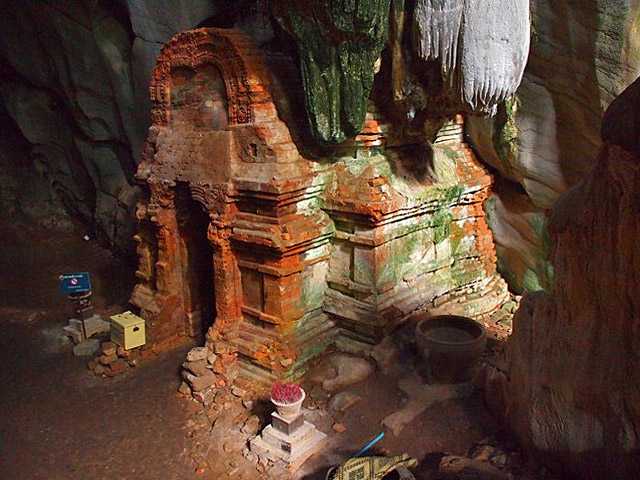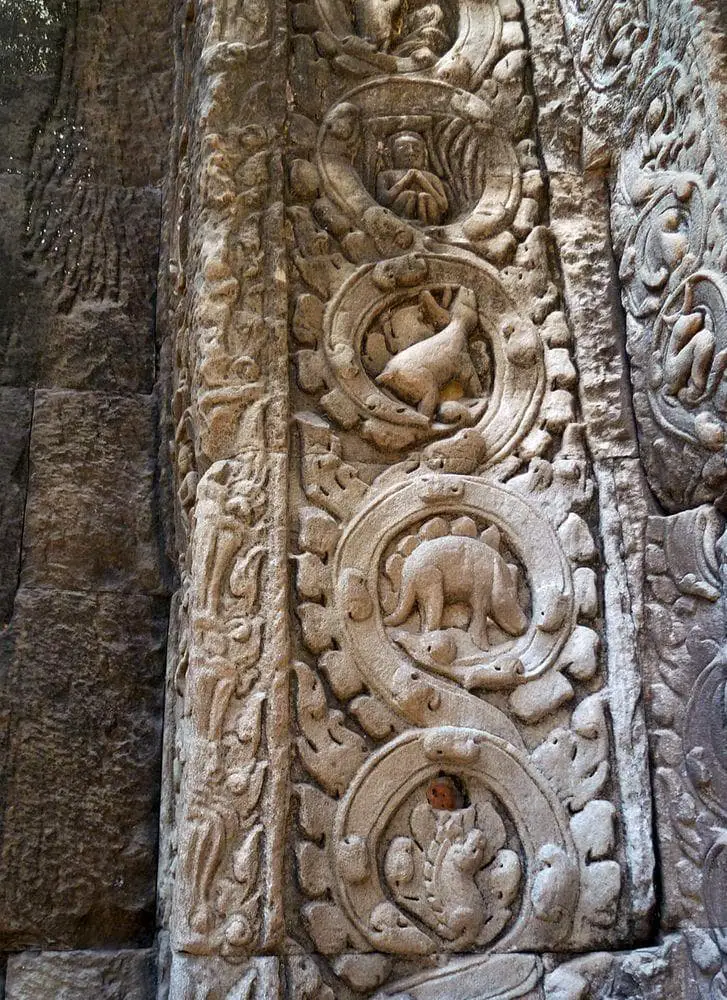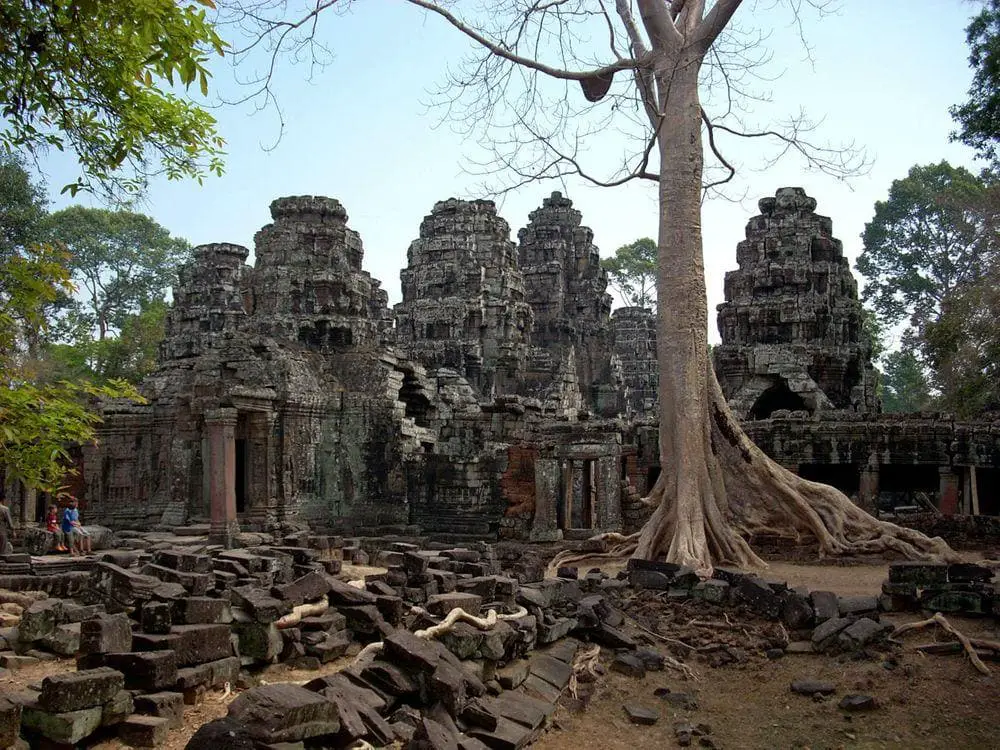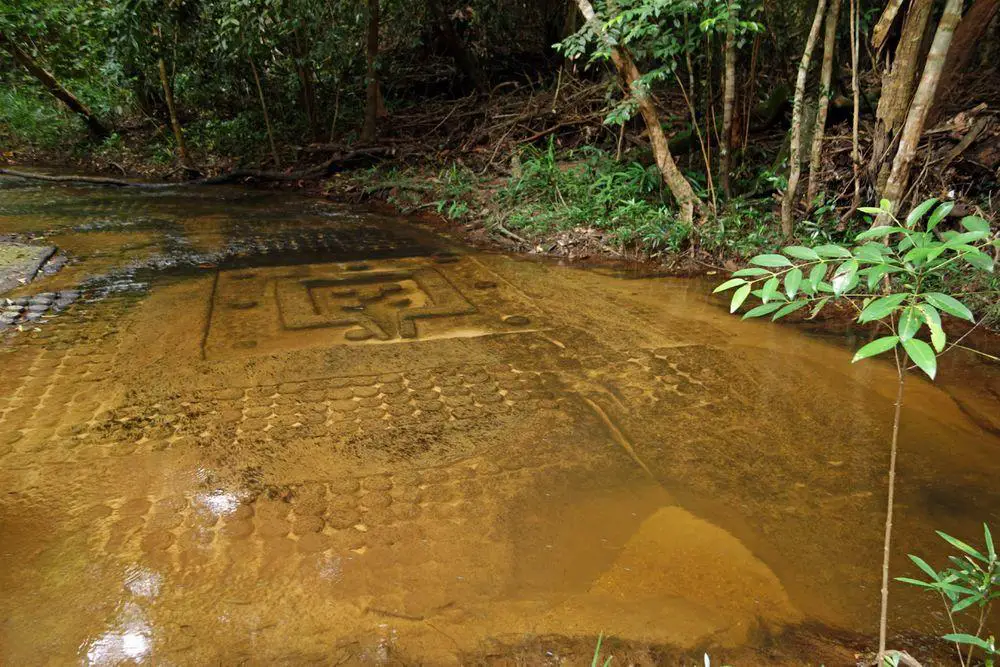Wondermondo 🢖 World 🢖 Wonders of Asia 🢖 Wonders of Cambodia
Territory
Wonders of Cambodia
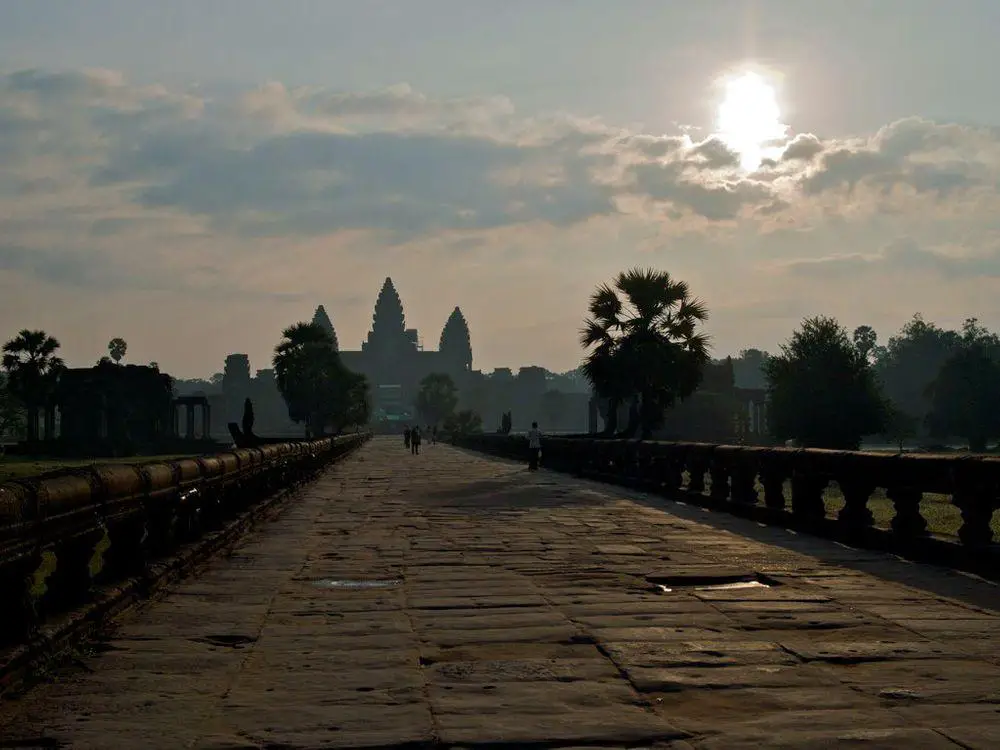
 Highlights
Highlights
Art and architecture flourished in several areas around the world in the 9th – 13th centuries, but one country stands out: Cambodia. Here the ancient Khmer Empire experienced the unseen frenzy of creativity and ambitions. Many thousands of people were building here temples of unseen beauty and size – at first more slowly and carefully and then increasingly fast and large, larger and faster and more and more ornate…
Then, in the early 14th century, this insane artistry came to a sudden stop and jungle-covered the incredible Khmer cities.
Now the whole world is amazed at the beauty of the world’s largest (and possibly – world’s most ornate) temples in the ancient capital of the empire – Angkor. But Angkor by far is not alone – there are more sites including the recently discovered Mahendraparvata city.
Map with the described wonders
If you see this after your page is loaded completely, leafletJS files are missing.
 Top 25 wonders of Cambodia
Top 25 wonders of Cambodia
Archaeological wonders
Phnom Kulen
Siem Reap
Ancient sacred mountain, the birthplace of Khmer Empire where this independent state was declared in 804 AD. Site contains many stone carvings and rock shelters, such as the interesting Peung Tbal.
Mahendraparvata
Siem Reap
Ruins of a jungle-covered city that was founded in 802 AD. The city was rediscovered near the Kbal Spean river in 2013.
Phnom Chhnork
Kampot
Hindu temple, built from brick in the 7th century inside a holy cave.
Phnom Da
Takéo
Ruins of one of the oldest extant temples in Cambodia, built in the 1st – 6th century AD. Temple was built by the people of Funan culture. Here have been found stone statues of outstanding quality as well as the oldest samples of Khmer writing.
Architecture wonders
Angkor Wat
Siem Reap
Considered to be the single largest religious complex in the world, built in the ancient capital of Khmers in the early 12th century. Considered to be one of the greatest achievements of humankind in architecture. Initially built as a Hindu monument, later converted into a Buddhist temple complex. Temple is adorned with more than 1 thousand m2 of high-quality bas-reliefs.
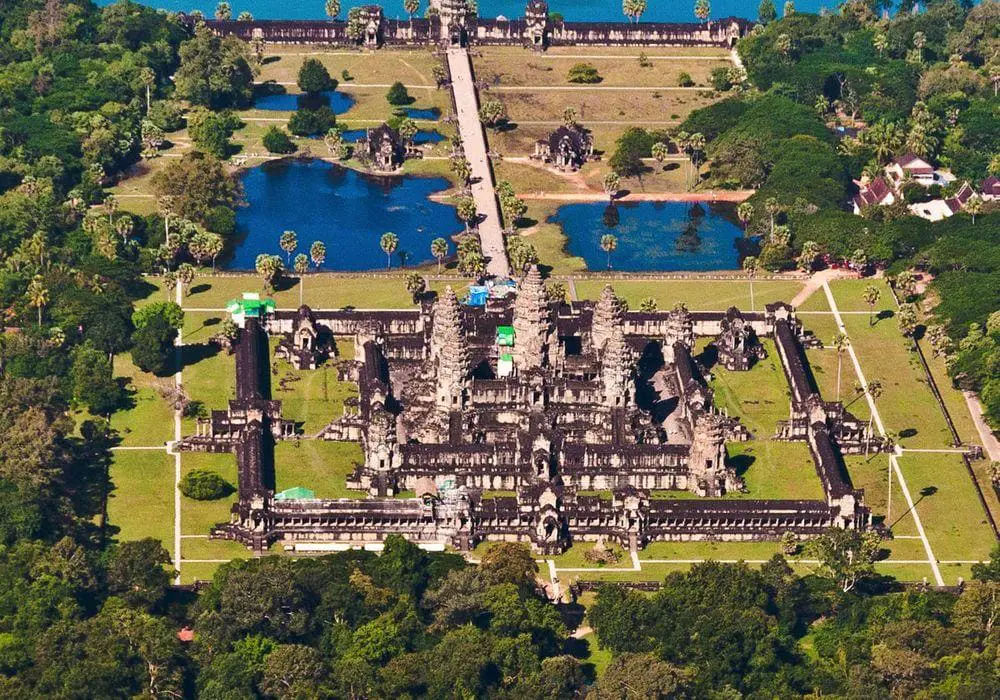
Angkor (Angkor Thom)
Siem Reap
The ancient Khmer capital city, the once largest city in the world with an area of at least 1,000 km². Flourished in the 8th – 15th century AD. The city has ruins of numerous masterpieces of ancient architecture including the largest religious complex in the world – Angkor Wat and 71 other large religious complexes.
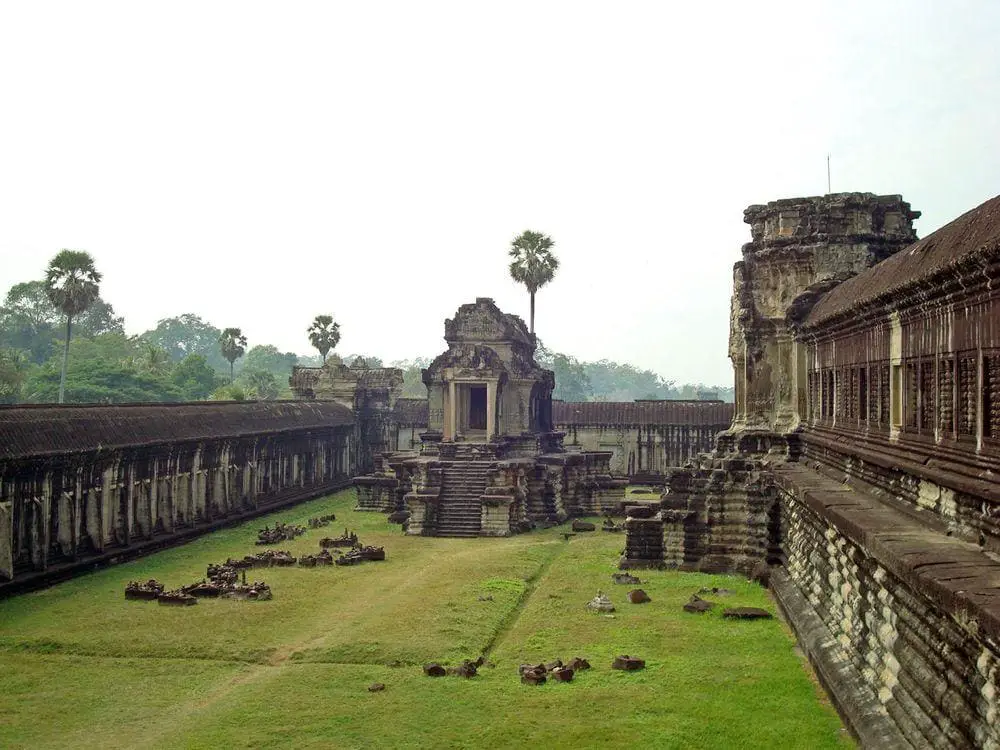
Ta Prohm (Rajavihara)
Siem Reap
Ruins of a Buddhist temple, monastery, and university in Angkor. These structures were built in the late 12th – early 13th centuries. Now, this is one of the most photogenic temples in Angkor with many trees growing on the ruins. In the temple were living more than 12 500 people and approximately 800 000 people in surrounding villages served them. Amazing detail is the carving of an unusual animal that looks like a stegosaurus.
Bayon
Siem Reap
Most beautiful and largest Buddhist temple in the ancient Khmer capital Angkor Thom. Built in the late 12th – early 13th century AD. Adorned with numerous large towers, contains numerous artworks.
Banteay Srei
Siem Reap
Comparatively smaller temple in Angkor, built in 967 AD. Temple is best known for its extremely intricate, high-quality stone carvings.
Koh Ker
Preah Vihear
Ruins of once important Khmer city. The city flourished in the late 9th – 10th century AD. Over the area of 81 km² have been found ruins of more than 180 temples. Buildings in Koh Ker are especially ornate. Most important are the ruins of Prasat Thom/Prang sanctuary.
Preah Khan
Siem Reap
Ruins of richly ornamented Buddhist and Hindu temple in Angkor. Temple was built in the 12th century and was served by some 100,000 officials and servants. Here was located an immense wealth of jewels and other values.
East Mebon
Siem Reap
Hindu temple that was built in 953 AD on an artificial island in the artificial lake – East Baray. This reservoir now is dry. Temple has very rich ornamentation including 2 m tall statues of elephants.
Bakong
Siem Reap
Ruins of a Hindu temple – pyramid in Hariharalaya. Temple was built in the first half of the 9th century. For a few years, this was the main temple in the country.
Phnom Bakheng
Siem Reap
Ruins of a large Hindu temple. This pyramid-shaped temple was constructed in the late 9th century. It was built on a hilltop and provides fine views of Angkor. Temple has seven levels and 109 towers. This was the main Khmer temple until the construction of Angkor Vat.
Prasat Thom/Prang
Preah Vihear
The main temple in the ancient Khmer capital Koh Ker, Hindu temple from the 10th century AD. Prasat Thom has 21 towers but especially impressive is Prang – a 36 m tall pyramid with seven layers.
Silver Pagoda (Wat Preah Keo)
Phnom Penh
Royal temple in Royal Palace complex, built in the 19th century. Temple contains fabulous wealth, such as the “Emerald Budha” of Cambodia, the golden Buddha adorned with 9,584 diamonds, and others.
Phimeanakas
Siem Reap
Hindu temple of pyramidal form in Angkor. Temple was built at the end of the 10th century and was important in the local mythology. King every night spent the first watch with a woman that represented the spirit – Naga of the temple. If Naga did not show up, the king was dethroned but if the king did not come then everyone expected that catastrophe will happen in the country.
Beng Mealea
Siem Reap
Large temple complex some 40 km outside Angkor. Temple was built as a Hindu temple with some Buddhist influence. Most likely it was built in the 12th century and is one of the largest known Khmer temples.
Banteay Kdei
Siem Reap
One of the most important Buddhist temples and monasteries in Angkor, built in the middle of the 12th century – early 13th century. Temple served until the 1960ies and contains a very rich collection of valuable stone reliefs and sculptures.
Preah Ko
Siem Reap
The oldest temple in Hariharalaya. This Hindu temple was built in 879 AD and consists of six pyramidal towers.
Sambor Prei Kuk
Kampong Thom
Group of temple ruins in the former capital of the Chenla Kingdom. These temples were built in the 7th – 8th century AD.
Pre Rup
Siem Reap
State temple of king Rajendravarman, built in 961 or 962 AD. Temple represents a group of steep pyramids that are up to 35 m tall.
Ta Keo
Siem Reap
Impressive ruins of temple-mountain (pyramid), reaching a height of 45 m.
Thommanon
Siem Reap
Smaller, exquisite Hindu temple in Angkor. Temple was built in the first half of the 12th century.
Kbal Spean Linga 1,000
Siem Reap
An amazing artwork – a large number of stone carvings made in live stone along Kbal Spean river banks and river bed. Most carvings represent lingams, but there are also carvings of Hindu deities and animals. Carvings were made in the 11th – 12th century along a river that flows to Angkor.
 Recommended books
Recommended books
The Rough Guide to Cambodia (Rough Guides)
Explore Cambodia with the smartest and most engaging guidebook on the market. Rough Guides’ expert authors have done all the hard work for you: seeking out the top guesthouses, sampling the tastiest Khmer food, and scouring the coast for the best beaches. Whether you’re shopping in Phnom Penh’s Central Market, exploring the astonishing ruins of Angkor, or relaxing on a sunset river cruise in Kampot, this new edition of The Rough Guide to Cambodia will show you ideal places to sleep, eat, drink and shop along the way, with options to suit every budget.
DK Eyewitness Travel Guide: Cambodia & Laos
Whether you want to explore the temples of Angkor Wat, take a boat trip through the famous Tham Kong Lo caves, or sunbathe on stunning white beaches in southern Cambodia, Cambodia and Laos offer exhilarating options for visitors.

